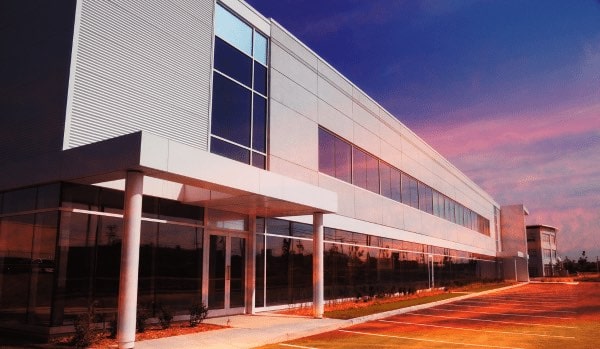New commercial real estate owners might realize they’ve bit off more than they can chew if they have never owned commercial property. However, learning the ins and outs of the business ensures success and profitability.
While commercial properties share some similarities with residential real estate, landlords must overcome unique challenges. These six tips for owning commercial real estate as a beginner, from implementing landlord management software to vetting tenants, will set you off on the right foot.
Six Tips For Success
1. Know Your Market and Establish a Niche
As a first-time landlord of commercial real estate, you’ll quickly realize your investment demands different management approaches than residential buildings. It’s key to research the area where you intend to purchase property so you can make smart choices when developing buildings and choosing tenants. What does the area need? For example, if there are few restaurants around but lots of residents who might choose to dine out, purchasing retail spaces that can be leased to restaurants could be a good move.
2. Learn to Underwrite and Crunch the Numbers
Underwriting is the process of evaluating the potential risks and returns of a property. As a new commercial real estate owner, this is an essential skill for making smart business decisions. It’s always a good idea to seek advice from tax and financial professionals during the underwriting process. A few major factors to look at when underwriting:
- Net Operating Income (NOI): a property’s total revenue minus operating expenses. This is a good shorthand for the property’s profitability
- Debt Service Coverage Ratio (DSCR): how much a property or business can cover its debt obligations. A good DSCR is usually above roughly 1.25, meaning it can cover its debt plus 25%
- Cap rate: estimates the potential return on investment for a property. Calculate it by dividing NOI by the property’s market value. Higher numbers mean higher potential returns, although it can also sometimes indicate higher risk
- Cash-on-Cash return: how much a property earns in a given year divided by the total investment into that property. This is another way to assess potential profitability.
Don’t forget to crunch your own numbers, too. Ensure you have strong sources of financing and cash reserves. You want to have enough available funds to keep yourself protected in case of an emergency. Do your research on potential investors and lenders to create strong, profitable connections.
3. Hire a Professional Team
As a commercial real estate owner with a growing business, you’ll soon reach a point where you can’t do everything alone. Picking a great team is crucial for continued success. Look into property managers, accountants, attorneys, and brokers who are experienced with commercial real estate. These professionals will help you keep satisfied tenants, make smart business decisions, ensure compliance with regulations, and navigate any disputes that may arise.
4. Manage Risk and Due Diligence
Implementing advanced security solutions should be the first item on your list as a new commercial real estate owner. Knowing who enters and exits your commercial property is critical to prevent trespassers or building misuse. Remember to install security cameras on your property’s grounds, including entrances, parking lots and common areas. Should someone’s vehicle get damaged, it will be easier to determine what happened with camera footage. Likewise, security measures can also aid you during emergencies including fire or other evacuations.
Aside from security, it’s important to know and plan for other risks in the space. Important questions to ask include: what are the physical areas in your commercial structure? What companies and industries will occupy those spaces? What is the condition? Are repairs needed? Schedule routine inspections and keep detailed records of its conditions, use, and specifications.
Other things to consider are where the exits and entrances are and each floor’s safety equipment. You should also ensure that both you and each of your tenants have proper insurance. You can require tenants to provide a certificate of insurance (COI) as a term of your lease.
Finally, bad tenants will make the landlord’s experience quite miserable and even risky, so be sure to vet them well. Commercial real estate owners can begin vetting with extensive background and credit checks. Request tax returns, operational reports, credit documents, and more for review. Also, check whether the company has faced prior legal problems.
5. Improve Tenant Satisfaction
The COVID-19 pandemic and transition to remote and hybrid working conditions may have changed commercial real estate forever. According to McKinsey, major cities still have a 10%–20% urban vacancy rate after pandemic lockdowns, even as more companies call employees back to the office.
However, a study from Maastricht University in the Netherlands showed tenant satisfaction greatly improves your bottom line. Per the study’s survey, a one-point increase in overall satisfaction indicated an 8.36% higher chance of lease renewal and an 11.52% likelihood of recommending the property to others. Unsurprisingly, location, building characteristics, indoor air quality, sustainability, and property management were factors that influenced the respondents’ considerations.
Tenants want their workspace to reflect their goals and ideals. Today, this means that green upgrades are a popular way to add value and satisfaction to properties. LEED-certified buildings report a 4% higher rental premium and 1%–17% higher rental rates, making sustainable and energy-efficiency upgrades a high-priority incentive for landlords.
Tenants benefit from energy savings as much as landlords and often see greater employee productivity and performance. Energy-efficient upgrades include adding LED light bulbs, installing a programmable thermostat, and adding low-flow toilets and bathroom sinks.
6. Continue Learning and Build a Mentor Network
If your goal is growth, you must keep learning and improving. Building a mentor network of more experience commercial real estate owners and professionals is a must for learning tips and tricks in the business. Mentors can help you learn about different types of properties, the market needs in the areas you’re considering purchasing, and how to handle complex commercial real estate processes. Leverage social media to build your network early.
Become a Pro at Commercial Property Management with STRATAFOLIO
First-time commercial real estate owners must overcome the learning curve of managing retail space. However, they will discover smoother operations after strategically approaching their new endeavor with the help of the latest technologies and upgrades. This beginner CRE guide is just the beginning: for best results, use a commercial property management software to help you hit the ground running.
Integrating landlord management software to oversee your commercial property will streamline operations and improve efficiency. Property management tools automate mundane tasks, organize data, manage transactions, and provide valuable insights to stay abreast of trends. STRATAFOLIO integrates with QuickBooks for smoother operations under tight deadlines. It also enables bulk invoicing, maintain lease agreements and liability insurance, and report on CAM reconciliations.
To learn how STRATAFOLIO helps you manage key operations and understand important financial details, schedule a free 1:1 demo now.






